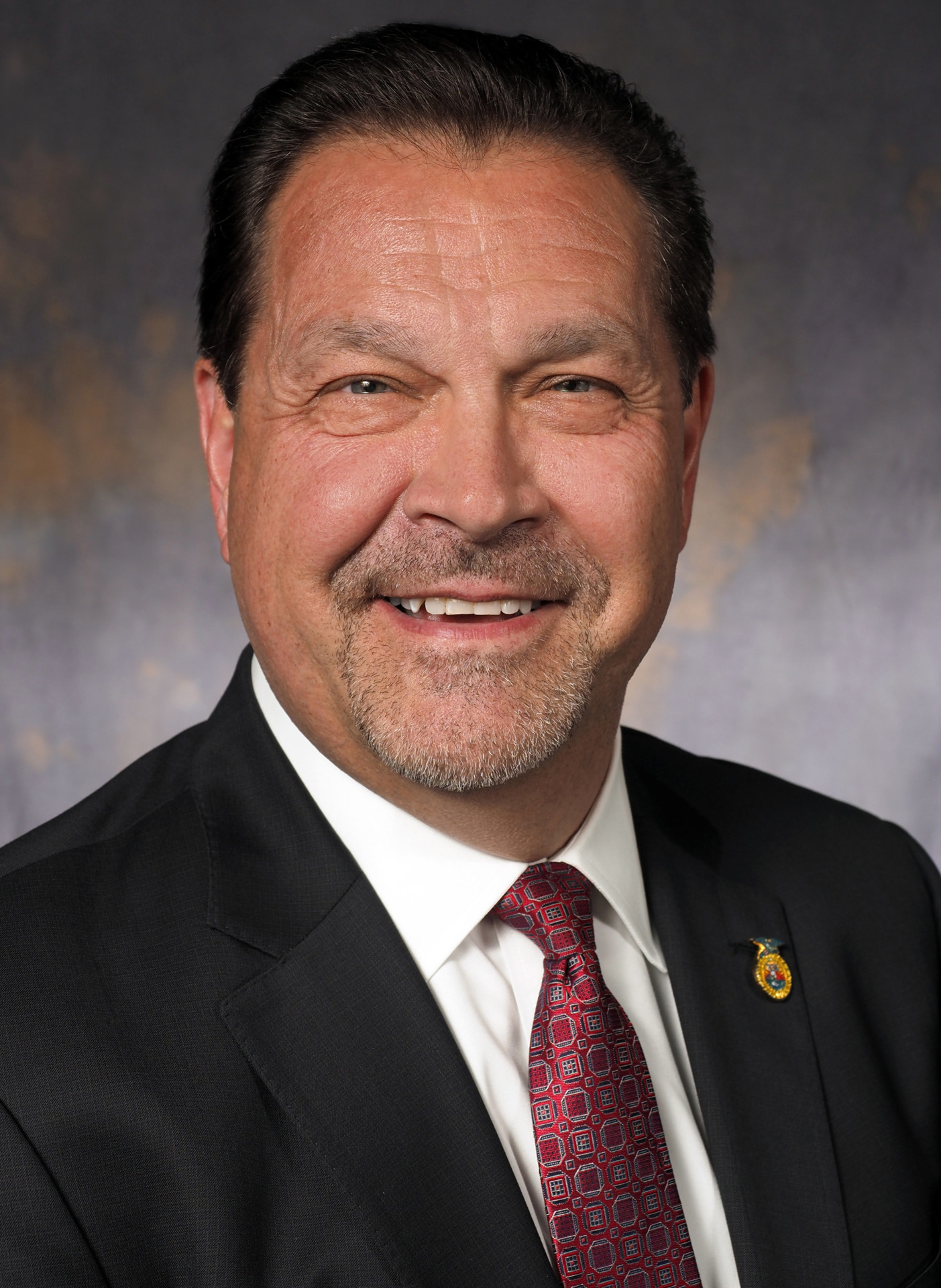 Name: Mark Poeschl
Name: Mark Poeschl
Title: CEO, National FFA Organization and National FFA Foundation
What is your background and how did you find your way into the ag industry?
I grew up in Nebraska and earned a Bachelor of Science degree in agriculture from the University of Nebraska. I began my career at Ralston Purina and then joined Carl S. Akey, Inc. in Ohio. Provimi Holding BV purchased Akey in 2000 and in 2007, I was named president and general manager of Provimi’s North American operations. In September 2009, I joined Provimi’s executive management team and relocated to Europe where I held responsibility for businesses in North America, Europe, the Middle East, and Africa. When Cargill acquired Provimi in 2011, I remained with the business, serving as vice president and group director at Cargill Animal Nutrition. During my tenure at Cargill, I was involved in the successful integration of Provimi as well as major capital expansion programs in the United States, South Africa, Jordan, France, Ireland, and the Netherlands. In 2016, I moved from industry and was named the Chief Executive Officer of National FFA. I credit my membership in FFA in high school as my introduction to my career in agriculture.
Why is diversity important to you and your company?
National FFA should be a welcoming and safe place for all students, agriculture teachers, alumni, and stakeholders to be celebrated as their authentic selves. FFA is the leadership development portion of the three-component agricultural education model found in more than 8,600 secondary schools across the country. There is something for everyone in FFA. Diversity makes possible our goal of developing the next generation of leaders who will change the world.
What current diversity initiatives do you have planned or ongoing?
Over the past three years, the National FFA Organization, in collaboration with the National Association of Agricultural Educators, has worked diligently and consistently in developing a sustainable and purposeful inclusion, diversity, and equity plan. Through this process we have engaged with consultant experts, held focus groups, surveyed stakeholders, and completed organizational assessments. Based on the input and guidance of that work, we are implementing several measures over the course of the next few years under the tagline Agricultural Education for All. Highlights of the measures include:
- Inclusion, Diversity and Equity training for educators and students
- Inclusion, Diversity and Equity instructional materials
- Inclusion, Diversity and Equity resources and actionable tools
- Agricultural Education for All Immersion Experience at National FFA Convention & Expo, NAAE Convention and other locations.
- Developing Inclusion, Diversity and Equity trained facilitators
- Organizational Inclusion, Diversity and Equity plans related to programs, policies, and practices.
In your opinion, what is the most exciting thing happening in the industry currently?
Agriculture is a rapidly evolving industry, employing a wide range of innovative and technologically driven improvements that will contribute in big ways toward feeding ten billion people by 2050. In many ways, agriculture is leading the way in the practical application of technology to address real life challenges. FFA members recognize that they can serve in important roles in the noble work of feeding people and advancing agriculture. Seeing their enthusiasm for 21st century agriculture and knowing that the doors are opening for people from all walks of life to join our collective work is very exciting and motivating for me.
What is your vision for the future of agriculture?
We all play a role in solving the big issues of assuring a growing population is fed and that we can do this with sustainable agricultural practices. I believe that agriculture will lead the way in this regard and do so with minimal waste while overcoming global distribution hurdles to assure people from every corner of the world are properly served. That effort will require that everyone has an equitable place at the table and that we are a welcoming place for all.
Is there anything else you would like people to know about your company or the agricultural industry?
While production agriculture remains at the core of FFA, our 700,000+ student members are preparing for agriculturally related careers across the wide spectrum of our industry. They are learning about over 250 careers directly related to agriculture in cities, towns, and rural areas across the country. With 40 percent of FFA chapters located in urban centers, and with a presence in 24 of the 25 largest cities in the United States, FFA is reaching more and more young people from all corners of the country and from very diverse backgrounds. These young people are learning how to be advocates for agriculture and recognize they have an important role in our future.
We’re an organization built for the 21st century and we’re proud to be providing a place where all students can contribute in very meaningful ways to an agricultural industry that is critical to the future of mankind.
About Together We Grow
Together We Grow is an agribusiness consortium with members that include major agricultural commodities companies, educational institutions, government agencies, and others committed to improving and expanding diversity in agribusiness. The consortium sponsors research and provides a platform to share best practices for building future workforce capacity; it will have its permanent home at the Spur Hydro building. For more information, visit twg.csusystem.edu.
About Spur: CSU System at the National Western Center
Coming in 2022: CSU System will open Spur, where innovative ideas and unforgettable experiences come to life at the National Western Center. Spur’s three buildings at the center of the landmark project in north Denver will ignite and fuel new ideas around water, food, and health and their impact on our lives and our world. Spur is where learning is open and accessible to all. Where researchers tackle the world’s most pressing problems around water, food, and health. Where art and culture challenge and surround you. Where rural and urban, local and global intersect. Learn more at csuspur.org.